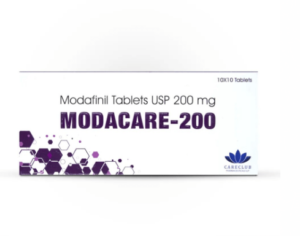Expert Tips for Improving Sleep Quality with Sleep Apnea

Sleep apnea is a sleep disorder. In this illness, breathing repeatedly stops and starts during sleep. It can lead to daytime fatigue, snoring, and other health problems.
Understanding Sleep Apnea and Its Impact on Sleep Quality
Disruption of breathing while sleeping is known as sleep apnea. There are two main types: obstructive and central.
Obstructive sleep apnea (OSA) results from the collapse of the pharyngeal muscles, which prevents airflow.
On the other hand, central sleep apnea is a result of insufficient brain control over the respiratory system.
Sleep architecture and quality are both negatively impacted by these disruptions. These aspects cause fragmentation of sleep. Cognitive impairment, cardiovascular risks, and excessive daytime sleepiness are some of the consequences.
Polysomnography, which measures the apnea-hypopnea index (AHI), is used for diagnosis. A personalized, interdisciplinary strategy is required to treat sleep apnea. It should have a focus on behavioral changes and medical treatments. This will improve breathing during sleep and other sleep metrics.
Expert Tips for Managing Sleep Apnea Effectively
Certainly! Managing sleep apnea effectively requires a combination of lifestyle adjustments. Moreover, medical procedures, and technology are also essential. Here are some expert tips:
CPAP Therapy
Use CPAP devices to deliver constant air pressure through a mask over the nose or nose and mouth. It maintains an open airway while sleeping. A healthcare expert must properly fit the mask and adjust the pressure settings to ensure efficacy.
BiPAP Therapy
Use BiPAP machines with dual pressure levels—one for inhalation and one for exhalation. This improves comfort, particularly for patients who struggle with exhalation under constant pressure.
APAP Therapy
Choose APAP machines that automatically alter air pressure based on breathing patterns throughout the night. It caters to those with changing pressure needs while sleeping.
Positional Therapy
Use specific pillows or wearable gadgets to induce side sleeping, This is especially effective for patients who experience sleep apnea primarily in the supine position.
Weight Management
Combat obesity, a major risk factor for sleep apnea. One can use diet and exercise to improve symptoms, especially if overweight or obese.
Avoid Alcohol and Sedatives
Avoid drinking alcohol and using sedatives before bedtime. This minimizes throat muscular relaxation and consequent airway obstruction. This will also improve sleep apnea symptoms.
Importance of a Healthy Sleep Routine
For optimal health, it is critical to stick to a regular sleep schedule. The body’s internal clock is subject to regular rhythms. Moreover, it influences the release of hormones, metabolism, and immunological function. In addition to lowering the risk of chronic diseases like diabetes and obesity, getting a good night’s sleep is equally important. This is because it helps cognitive performance, emotional stability, and cardiovascular health.
Better sleep habits, like doing relaxing tasks at the same time every night, are important for getting a good night’s sleep. It also helps you stay energetic during the day. Making sleep a priority can make you happier and more productive. Additionally, it can improve your quality of life. This shows that sleep is an important part of living a healthy life.
Creating a Sleep-Friendly Environment
Creating a sleep-friendly environment for individuals with sleep apnea is essential to promoting restorative and uninterrupted sleep. Here are some key considerations:
Optimal Sleeping Position
Encourage side sleeping to prevent airway obstruction. Utilize specialized pillows or positional therapy devices to support a comfortable side-sleeping position. This will also reduce the frequency of apnea episodes.
Noise Reduction
Minimize noise disturbances in the bedroom to promote uninterrupted sleep. Consider using white-noise machines or earplugs to mask external sounds that may disrupt sleep quality.
Light Control
Ensure the bedroom is dark and conducive to sleep. Use blackout curtains or eye masks to block out light that can interfere with the body’s natural sleep-wake cycle.
Temperature Regulation
Maintain a comfortable temperature in the bedroom to promote relaxation. This will also prevent discomfort during sleep. Keep the room cool, but not too cold, to support optimal sleep conditions.
It is possible to enhance sleep quality and overall well-being. It creates a sleep-friendly environment tailored to the specific needs of individuals with sleep apnea,.
Consulting Healthcare Professionals
Seeking guidance from healthcare professionals is essential for effectively managing sleep apnea. Healthcare professionals offer precise diagnostic services. They suggest personalized treatment options, such as CPAP therapy or oral medications and provide continuous monitoring, education, and assistance. By leveraging their specialized knowledge and skills, individuals can proficiently handle symptoms. Not only that, but they can also enhance their overall quality of life.











